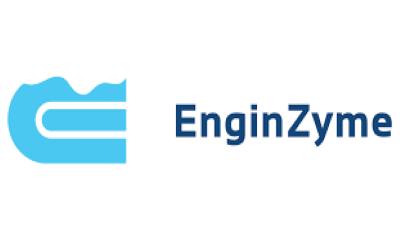2023 Nobel laureates discovered how pseudouridine could make mRNA suitable for vaccines

EnginZyme AB, a deep-tech company whose cell-free biomanufacturing technology uses the power of enzymes to create sustainable products and processes for a variety of industries, announced that it had patented a process to synthesize pseudouridine, a key ingredient in mRNA COVID-19 vaccines.
EnginZyme and its CDMO partner, Ajinomoto Bio-Pharma Services, specialized in scale up and cGMP manufacturing of small molecules and other high-value fine chemicals, said they could provide pseudouridine at a discount to buyers taking part in efforts to bolster the global supply chain of vaccine ingredients. The companies said they had already synthesized enough pseudouridine for more than half a billion doses of vaccine in a facility that is fully cGMP compliant.
The enzymatic process EnginZyme has perfected is cleaner and more efficient than the chemical synthesis methods currently used. A critical impurity, alpha-pseudouridine, which is a by-product of the chemical synthesis of beta-pseudouridine, is eliminated in EnginZyme's patented enzymatic synthesis. For more technical information, see our website.
The 2023 Nobel Prize for Physiology or Medicine was awarded to Katalin Karikó and Drew Weissman, the pair who discovered that changing a chemical building block of messenger RNA – substituting pseudouridine for uridine – eliminated an inflammatory side effect that stalled development of vaccines based on mRNA. They made this discovery more than 15 years before the COVID-19 pandemic.
During the COVID-19 crisis, the World Health Organization found that low- and middle-income countries were suffering from a lack of vaccine doses amid production and supply constraints, hoarding by wealthy countries, and prioritization of sales to governments that could pay the highest prices.
"Not long after we discovered the process for making pseudouridine, we realized that we could produce a pure version at scale for much less than it was going for on the market," said Karim Engelmark Cassimjee, CEO of EnginZyme. "We decided the right thing to do would be to use this discovery to help make the global healthcare supply chain more resilient." He added that academic and nonprofit organizations could apply to receive free samples for research purposes.
Geert Schelkens, R&D Manager at Ajinomoto Bio-Pharma Services, said: "The scale-up of a biocatalytic process and a green workup results in a drastic reduction of the compound's footprint. This achievement nicely aligns with our sustainability ambitions. This project with EnginZyme has been particularly rewarding because of its potential to improve the global supply chain for vaccine ingredients.”
"Synthesizing pseudouridine with enzymes is so much more efficient than the chemical synthesis that is common today," said Matthew Thompson, head of enzyme development and innovation at EnginZyme. "It's a perfect example of what we are striving for: zero waste, less energy, and a cleaner result. We want to apply this across the spectrum of chemical manufacturing."

Subscribe To Our Newsletter & Stay Updated